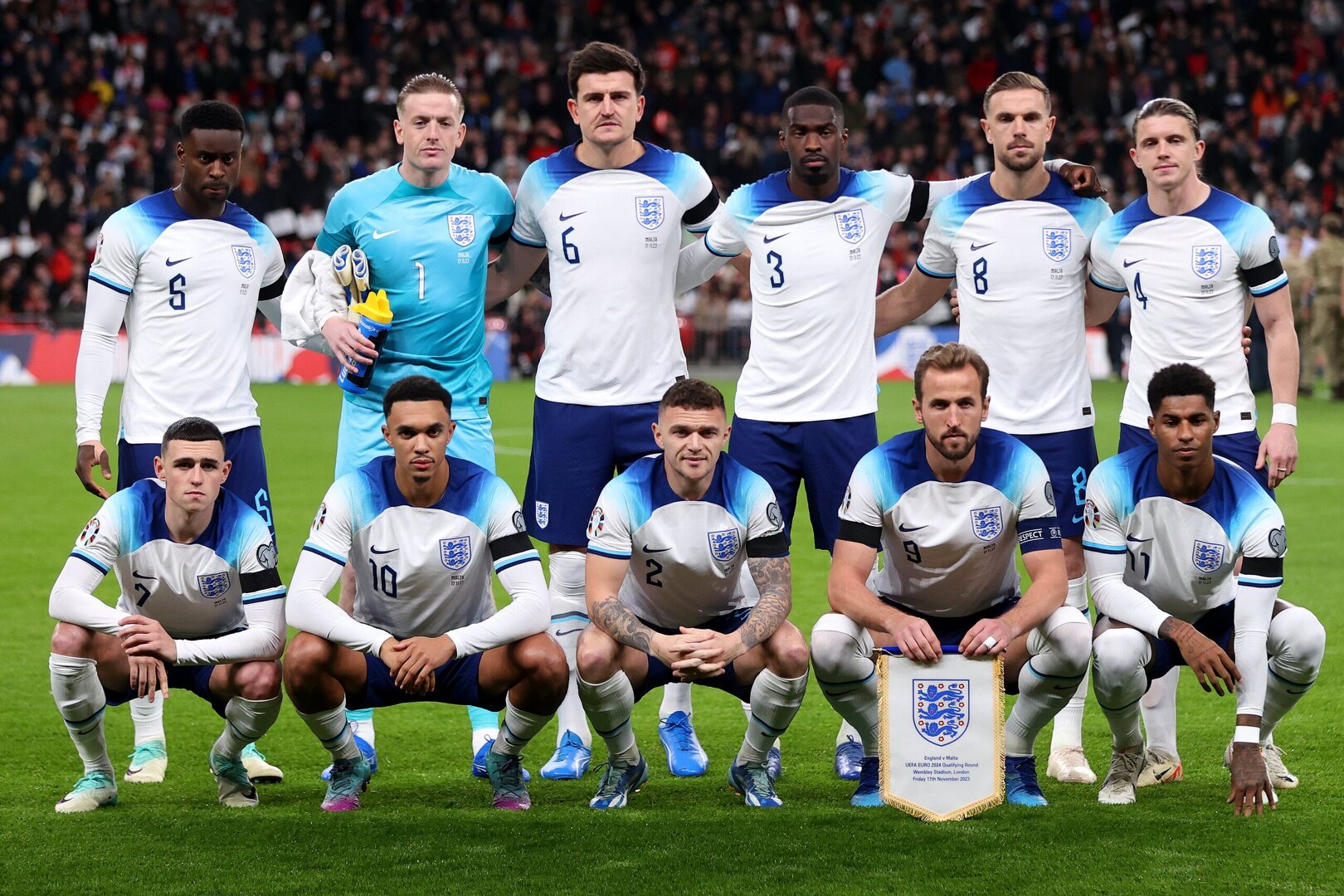The England Football Team, also known as the Three Lions, is undoubtedly one of the most iconic and popular teams in the world of football. With a rich history dating back to the 19th century, the team has seen its fair share of successes, failures, and controversies. From their first official match against Scotland in 1872 to their recent victory against Denmark in the Euro 2020 semi-finals, the England Football Team has captured the hearts of millions of fans around the globe.
In this article, we will take a deep dive into the journey of the England Football Team – from its humble beginnings to the heights of glory, and everything in between. We will explore the key moments, players, and events that have shaped the team’s history and how they have become a symbol of national pride for the English people.
Introduction to the Early Years of the England Football Team
Football, bloody hell! These words from former Manchester United manager Sir Alex Ferguson perfectly capture the essence of the sport that has captured the hearts of millions around the world. And in England, the birthplace of modern football, the sport holds a special place in the hearts of its people.
The England Football Team traces its roots back to the 19th century when football was beginning to take shape as a popular sport. In 1863, the Football Association (FA) was formed, laying the foundation for organized football in England. However, it wasn’t until 1872 that the first official international match took place between England and Scotland, leading to the birth of the England Football Team.
The early years of the team were characterized by amateurism and a lack of structure. In fact, the first official England team consisted of players from various clubs, with no designated positions or tactics. But despite these challenges, the team managed to establish itself as a force to be reckoned with in the world of football.

The origins of the England Football Team can be traced to the 19th century, a time when football was emerging as a popular sport
The Golden Era of the England Football Team
The first major success for the England Football Team came in the early 20th century, known as the Golden Era. Led by legendary captain Billy Wright, the team achieved impressive results, including a 6-1 victory against Germany in 1935 and a 10-0 win against the United States in 1948.
However, the team’s momentum was halted by the outbreak of World War II, with many players being called up to serve in the military. Despite this setback, the England Football Team managed to defeat Scotland 8-0 in 1946, a match that is still considered one of the most famous victories in the team’s history.
Undoubtedly, the biggest moment for the England Football Team during this era was their triumph in the 1966 World Cup. The tournament, held on home soil, saw the Three Lions Defeat West Germany 4-2 in an iconic final at Wembley Stadium. This victory cemented England’s place as a powerhouse in international football and remains the team’s only World Cup win to date.
The Dark Ages of the England Football Team
After the success of the 1966 World Cup, the England Football Team experienced a period of decline that would last for over two decades. The team failed to qualify for three consecutive World Cups from 1974 to 1986 and had disappointing performances in the European Championships as well.
During this period, the England team was plagued by controversies and internal conflicts, with disagreements between players and managers, and poor management decisions. These issues were further compounded by the lack of success on the pitch, leading to a sense of disillusionment among fans.
The Revival of the England Football Team
The fortunes of the England Football Team began to change in the 1990s when a new generation of talented players emerged. The likes of David Beckham, Steven Gerrard, and Frank Lampard brought a new energy to the team, and under the guidance of manager Terry Venables, England reached the semi-finals of the Euro 96 tournament.
However, it wasn’t until the arrival of the Premier League in the 1990s that the England team truly started to thrive. With the influx of foreign talent and the improvement of facilities and training methods, English players were exposed to a higher level of competition and were able to develop their skills further.
The early 21st century saw the England Football Team return to success in major tournaments, with notable performances in the 2002 and 2006 World Cups, reaching the quarterfinals in both tournaments. Despite not winning any silverware, the team’s improved performances signaled a revival for English football on the international stage.

As foreign talent poured in and facilities and training methods improved, English players encountered heightened competition, leading to enhanced skill development
The Present and Future of the England Football Team
The current England squad is arguably one of the most talented in recent years, with an exciting mix of experienced veterans and young prospects. Led by manager Gareth Southgate, the team has achieved impressive results in recent years, including reaching the semi-finals of both the 2018 World Cup and the 2019 UEFA Nations League.
Some key players to watch out for in the current squad include Harry Kane, Marcus Rashford, and Raheem Sterling, who have all established themselves as top-level performers for both club and country. With a strong core of players and promising talent coming through the ranks, the future looks bright for the Three Lions.
However, with expectations high and the weight of history on their shoulders, the England Football Team faces significant challenges in achieving success in major tournaments. The pressure to perform and the intense scrutiny from the media and fans can be overwhelming, as seen in past tournaments. But with a talented team and a capable manager, there is hope that the Three Lions will continue to progress and bring home some silverware in the near future.
The Cultural Significance of the England Football Team
Football is an integral part of English society, and the England Football Team holds a special place in the hearts of its people. The sport brings together people from all walks of life, transcending social and cultural barriers. The team’s successes and failures are closely followed by millions of fans, and their achievements are celebrated as national triumphs.
The relationship between the team and its fans is a unique one. The passion and loyalty of English fans are unrivaled, as seen in the iconic chants, songs, and traditions that are synonymous with supporting the Three Lions. The team’s success is often tied to national pride and identity, and their performances can have a significant impact on the nation’s mood.

Football is deeply woven into English society, and the England Football Team occupies a unique and cherished position in the hearts of its populace
Moreover, the England Football Team has also played a crucial role in breaking down societal barriers and promoting diversity and inclusion. With players from various cultural backgrounds representing the team, football has become a symbol of unity and acceptance in England.
Conclusion
The journey of the England Football Team has been a rollercoaster ride filled with highs and lows, joy and heartbreak, triumphs and disappointments. From its humble beginnings in the 19th century to its recent successes, the team has come a long way and has cemented its place in the hearts of millions of fans around the world.
The future holds great promise for the England Football Team, with a talented squad, passionate fans, and a strong foundation in place. As the famous song goes, it’s coming home, and while the ultimate goal of bringing home a major trophy remains elusive, the spirit and determination of the team and its fans will continue to drive them forward towards glory.


